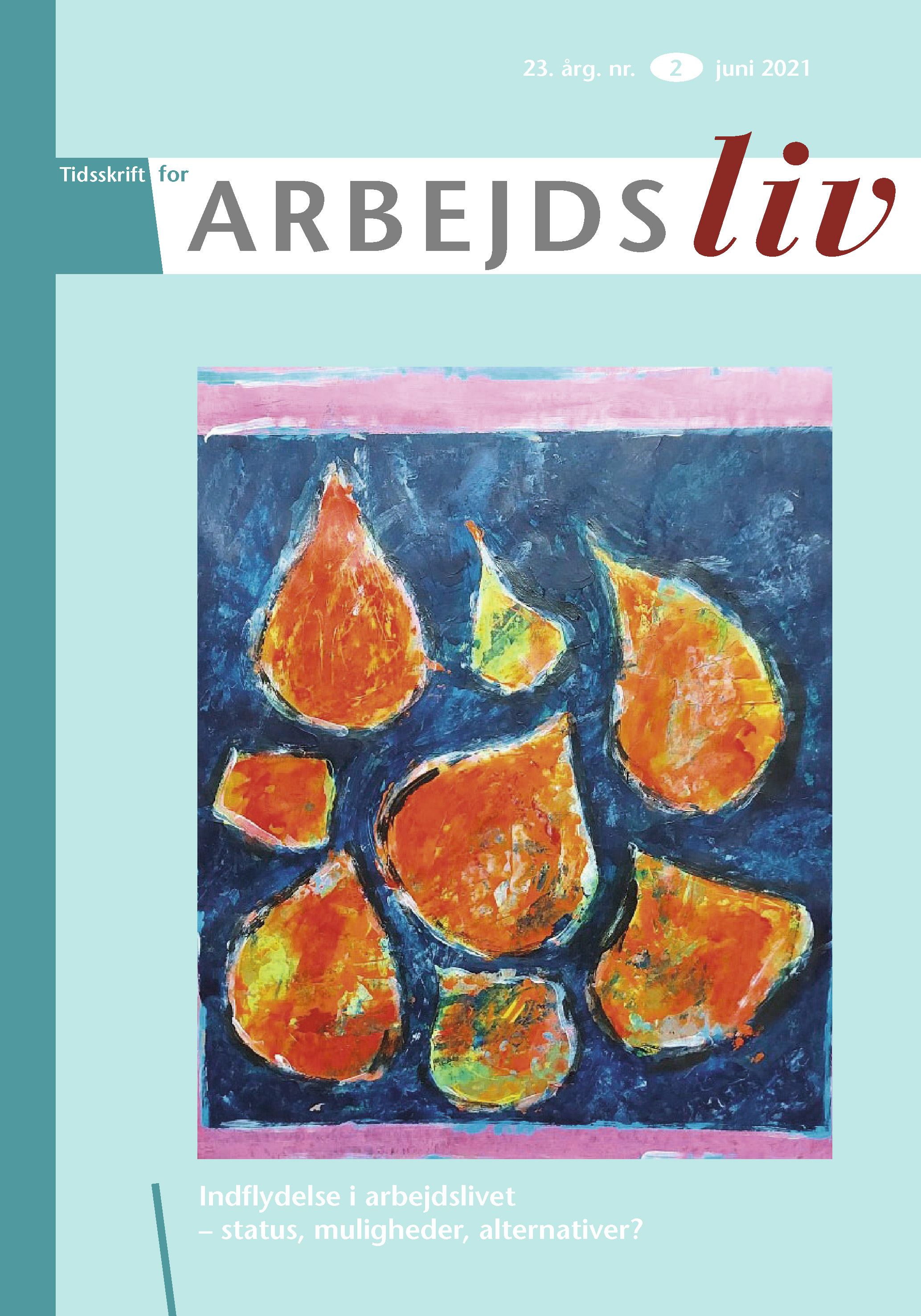Democratic organizing – a case study in managing without leaders
DOI:
https://doi.org/10.7146/tfa.v23i2.128240Keywords:
Medarbejderkooperativer, Arbejdspladsdemokrati, Vidensarbejde, Demokratisk organiseringAbstract
Currently, we experience a renewed and increasing interest in democratic organization in relation to today‘s working life, both as a practice phenomenon and a fi eld of research. Hence, research literature points at the need for qualitative studies at a micro level to uncover concrete experiences with democratic forms of organization and management. This article contributes with such a study. The empirical outset is the consultancy fi rm Analyse & Tal, which in 2014 was established as an employee cooperative emphasizing co-ownership, equal pay and an ideal of a healthy work-life balance. The study is based on in-depth interviews with the majority of the co-owners as well as a number of workshops. The primary analytical insights are: 1) co-ownership is considered crucial to practicing democratic organizing, both at a strategic and operational level, 2) clear procedures and a strong narrative support distributed leadership and democratic practices, and 3) the idea of a good working life is closely associated with working time norms and equal pay, not only for the individual, but also as a proposed new agenda for society at large. These insights form the basis for discussing whether the stated values are decoupled in practice – as a possible critical aspect of democratic management and organizing.
Downloads
Published
How to Cite
Issue
Section
License

This work is licensed under a Creative Commons Attribution-NonCommercial 4.0 International License.
Forfattere, der publicerer deres værker via dette tidsskrift, accepterer følgende vilkår:
- Forfattere bevarer deres ophavsret og giver tidsskriftet ret til første publicering, samtidigt med at værket ét år efter publiceringen er omfattet af en Creative Commons Attribution-licens, der giver andre ret til at dele værket med en anerkendelse af værkets forfatter og første publicering i nærværende tidsskrift.
- Forfattere kan indgå flere separate kontraktlige aftaler om ikke-eksklusiv distribution af tidsskriftets publicerede version af værket (f.eks. sende det til et institutionslager eller udgive det i en bog), med en anerkendelse af værkets første publicering i nærværende tidsskrift.
- Forfattere har ret til og opfordres til at publicere deres værker online (f.eks. i institutionslagre eller på deres websted) forud for og under manuskriptprocessen, da dette kan føre til produktive udvekslinger, samt tidligere og større citater fra publicerede værker (se The Effect of Open Access).





